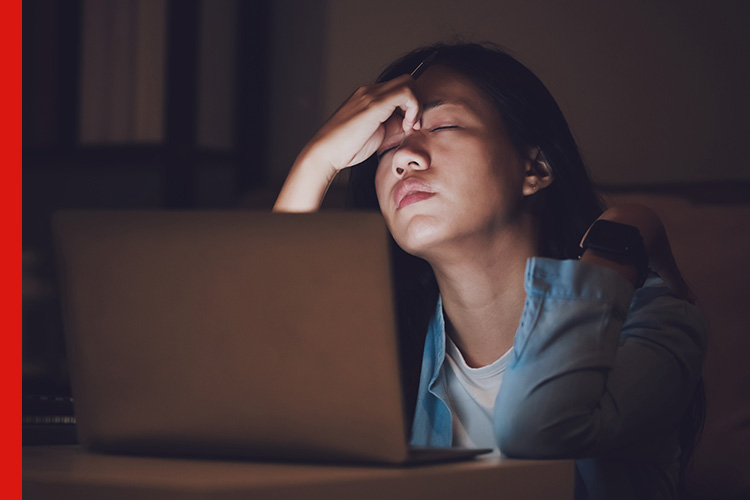
The past winter it felt as though everyone in New Zealand was doing the job of two people. Viruses were running rampant and workers were in short supply, yet some businesses were in high demand. Added to the stress of the previous two years, it’s been tough going.
“We’re in a perfect psychological storm, as well as an economic storm,” says Dr Iain McCormick, founder and partner at the Executive Coaching Centre.
“It’s not surprising that burnout is with us – it’s result of prolonged exposure to high stress. I’m seeing lots and lots of people feeling this way.”
The three stages of burnout
The first stage of burnout is emotional exhaustion, McCormick explains.
It’s not only at the end of the day; it starts the minute you wake up. Your mental resources are depleted and sleep doesn’t feel reviving, so you begin each day with nothing left to give.
After that comes the second stage, disengagement: “Work becomes less interesting and stimulating, and your energy level continues to drop.” This is the point at which ‘quiet quitting’ starts to feel like a smart choice.
Then finally, you reach a state of depersonalisation. Being empathetic and understanding takes more than you have to give. Instead, you treat others with dispassion and objectivity, often in a cursory way – this only makes the situation worse.
Becoming withdrawn and isolated
“It’s a relatively predictable pattern,” says McCormick.
“People start out with the desire to do a good job and prove themselves. Then the workload builds up and they struggle to switch off. They start to neglect their own needs, particularly exercise. They stay up late and their sleep gets worse. Their eating deteriorates too.”
At this point, other people will notice and try to help, but someone with burnout will usually withdraw and become isolated. This can turn into a downward spiral toward depression.
Recovering by reconnecting
First, step back. Seek professional advice and take a break from work. If you can afford it, reduce your domestic duties; hire a cleaner perhaps, or pay for more childcare.
McCormick says recovering from burnout also requires you to reconnect – with other people, and with your old pastimes. When you have a little space, reach out to the people who’ve been worried about you and tell them you’ll be back in touch when you’re feeling better.
“Then when you start to recover, typically your sleep and diet will improve. You can get back into exercise, plus some form of relaxation,” McCormick advises.
“Then look back: What did you used to do, but you’ve given it up because you’re so exhausted? Get back into those resilience-building activities like playing music, doing yoga, or going to concerts.”
Prevention is powerful
Once someone is fully burnt out and reaching a crisis point, it takes considerable time and effort to recover. If you can, don’t let it get that far. Watch for warning signs and prevent them escalating, McCormick recommends:
“Analyse your thinking patterns to work out what combination of things triggered this. Start to look ahead at your workflow and find ways to manage it before it becomes overwhelming. And challenge your unhelpful thinking patterns – working harder is not the only solution to your problems.”
You can hear more from Dr Iain McCormick in The Summer Rethink Westpac Smarts Seminar.
